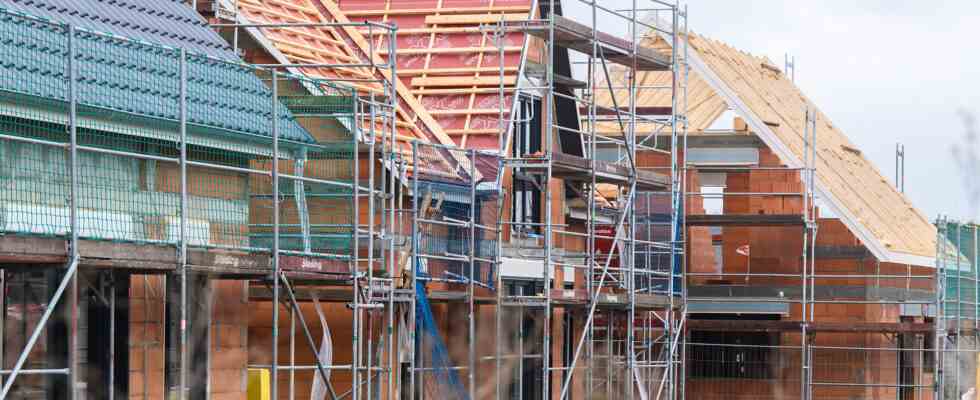Status: 18.11.2022 10:15 a.m
In Germany, the number of building permits for new apartments and houses continues to decline. The reason for this is the rising building interest rates and the ever-increasing material costs.
The number of building permits for apartments and houses also fell significantly in September. It fell by 9.1 percent compared to the same month last year to 27,449 apartments, as reported by the Federal Statistical Office. This is the fifth decline in a row, in August the minus was even 9.4 percent.
The number of permits had already fallen in the previous months of August and July. The German construction industry was already referring to rising energy prices and building interest, inflation and price increases for building materials. After nine months, the number of permits at 272,054 is now 3.7 percent behind the same period last year. Over 10,000 fewer apartments were approved.
Strong decline in single-family homes
The number of newly approved single-family homes fell particularly sharply in the first three quarters. Overall, the minus was 15.4 percent to 61,509 permits. “Here, however, the base effect as a result of the expiry of the Baukindergeld in the previous year must be taken into account,” according to the statisticians. For example, families with children could apply for the state subsidy measure if they had a building permit for owner-occupied residential property by the end of March 2021.
Two-family houses fell by 4.5 percent to 23,124. In the case of apartment buildings, on the other hand, the number of approved apartments rose by 3.7 percent to 145,181.
Companies lack the capacity
The number of building permits is an important indicator of the housing shortage in many cities. However, apartments that are currently approved are often not built at first because craftsmen and construction companies do not have the capacity. Increased prices for building materials and building land are also slowing down.
The negative development is another setback for the federal government, which had set the target of 400,000 new homes per year. The ifo Institute also speaks of an increasing wave of cancellations in the industry. “In view of the often hardly calculable construction costs and rapidly increasing interest rates, many builders throw in the towel, they postpone projects or cancel them entirely,” explains ifo researcher Felix Leiss. Order cancellations are particularly common in residential construction.

